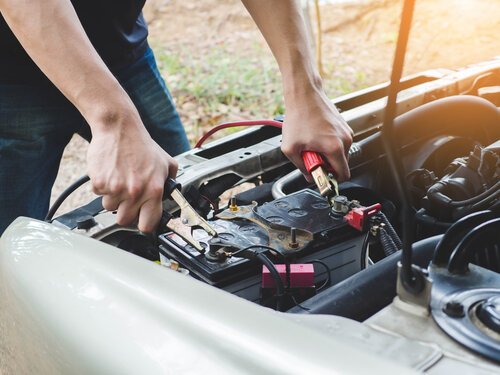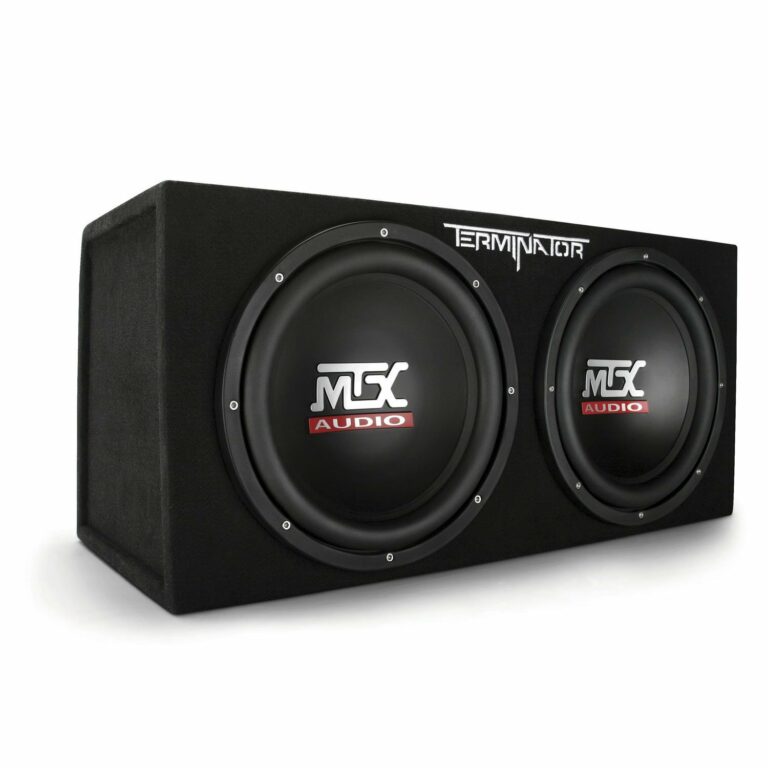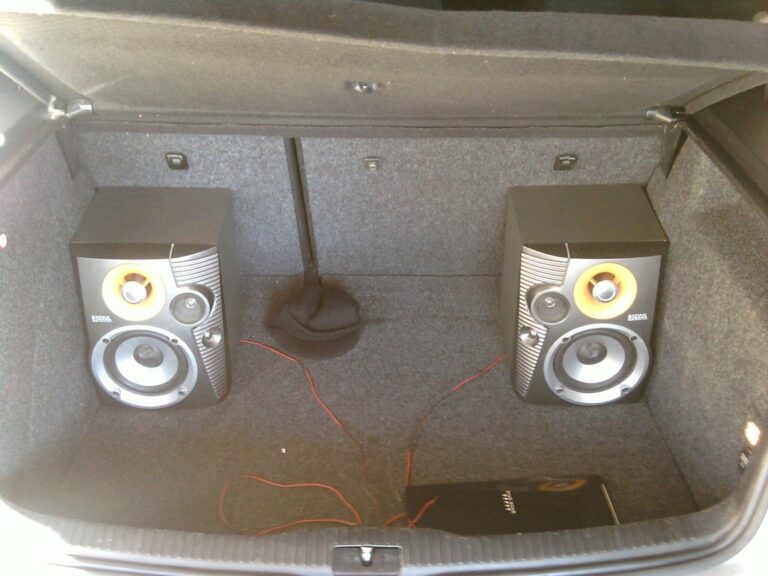Can I Use A Boat Battery In My Car?
Can I use a boat battery in my car? The answer is, technically, yes. However, before you rush off to install a boat battery in your car, there are a few crucial things you need to know. While both boat batteries and car batteries serve the purpose of supplying power, they differ in terms of design and functionality.
In this article, we will dive into the nitty-gritty details of using a boat battery in your car, discussing compatibility, safety considerations, and whether it is a good long-term solution. So, let’s explore the world of batteries and find out if using a boat battery in your car is a feasible option.
Can I Use a Boat Battery in My Car?
With the increasing popularity of boating and recreational vehicles, many people find themselves wondering if it’s possible to use a boat battery in their car. While both vehicles require a battery to power their electrical systems, there are important differences between a boat battery and a car battery. In this article, we will explore whether it is safe and practical to use a boat battery in a car, and discuss the specific considerations involved.
Understanding the Differences: Boat Batteries vs. Car Batteries
Before diving into whether a boat battery can be used in a car, it’s important to understand the differences between these two types of batteries. Boat batteries, also known as marine batteries, are designed to provide reliable power for long periods of time, often in harsh conditions, such as saltwater environments. Car batteries, on the other hand, are designed to provide short bursts of high power to start the engine and power the vehicle’s electrical systems.
1. Battery Chemistry and Construction
Boat batteries are typically deep cycle batteries, which means they are designed to be discharged and recharged repeatedly. They are built with thicker plates and have a higher electrolyte volume, allowing them to withstand deep discharges without significant damage. Car batteries, on the other hand, are usually starting batteries, designed to deliver a high amount of current in short bursts. They have thinner plates and less electrolyte, optimized for quick bursts of power.
2. Capacity and Reserve Capacity
Boat batteries generally have a higher capacity and reserve capacity compared to car batteries. Capacity refers to the amount of electrical energy the battery can store, while reserve capacity represents the number of minutes a battery can deliver a specified amount of current before it drops below a certain voltage. Car batteries typically have lower capacity and reserve capacity since their primary function is to start the engine, while boat batteries are built to deliver power for longer durations.
Using a Boat Battery in a Car: Factors to Consider
While it may be tempting to repurpose a boat battery for use in a car, there are several important factors to consider before doing so. Using a boat battery in a car can have both advantages and disadvantages depending on specific circumstances.
1. Compatibility
The first and most crucial factor to consider is compatibility. Car batteries come in various sizes, terminal configurations, and voltage ratings, and it’s essential to ensure that the boat battery you intend to use matches the requirements of your car. Check your car’s owner’s manual or consult with a professional to determine the correct battery specifications.
2. Cranking Amps
Cranking amps (CA) or cold cranking amps (CCA) measure the battery’s ability to start the engine in cold temperatures. Car batteries are designed to deliver a high CCA to provide enough power to start the engine, while boat batteries may not have the same level of cranking amps. Using a boat battery with lower cranking amps in a car could result in difficulty starting the engine, especially in cold weather conditions.
3. Charging Requirements
Car batteries are constantly being charged by the vehicle’s alternator while the engine is running. This charging system is specifically designed to meet the charging needs of car batteries, which may differ from the requirements of boat batteries. Boat batteries often require different charging profiles, such as lower charging voltages or multi-stage charging, to ensure optimal performance and longevity. Using a car’s charging system with a boat battery may not provide the necessary charging regimen, potentially leading to undercharging or overcharging.
4. Durability and Longevity
Car batteries are generally designed to last for a few years under normal driving conditions, while boat batteries are built to withstand more demanding usage patterns. Boat batteries are constructed to endure deep discharges and recharges, while car batteries are not. Using a boat battery in a car may result in a shorter lifespan due to the different demands placed on the battery.
5. Warranty Considerations
Using a boat battery in a car may void any warranty provided by the battery manufacturer. Manufacturers design batteries specifically for the intended purpose, and using them in a different application can lead to premature failure or other issues. It’s important to check the warranty terms and conditions before repurposing a battery.
The Verdict: Boat Battery or Car Battery?
While it may be possible to use a boat battery in a car under certain circumstances, it is generally not recommended. The differences in battery chemistry, construction, capacity, and charging requirements make car batteries the better choice for automotive applications. It is always best to choose a battery specifically designed for the intended use to ensure optimal performance, reliability, and longevity.
In conclusion, using a boat battery in a car is not advisable due to various factors, including compatibility, cranking amps, charging requirements, durability, and warranty considerations. Car batteries are specifically designed to meet the requirements of automotive applications and are generally the safer and more practical option. It’s always recommended to choose the right battery type for your vehicle to ensure reliable performance and avoid potential issues.
Remember, when it comes to batteries, it’s essential to prioritize safety, performance, and the longevity of both your vehicle and the battery itself. If you have any doubts or questions about your specific situation, it’s best to consult with a professional who can provide expert advice tailored to your needs.
Car Batteries VS Boat Batteries – What’s the Difference?
Frequently Asked Questions
Can I use a boat battery in my car?
Using a boat battery in a car is not recommended. While there may be some similarities between boat and car batteries, such as the use of lead-acid technology, they are designed for different purposes and have distinct differences. Car batteries are built to provide short bursts of high current to start the engine, while boat batteries are designed to provide steady power over a longer period. Using a boat battery in a car could potentially result in insufficient starting power and may lead to damage to the vehicle’s electrical system.
What are the main differences between a boat battery and a car battery?
Boat batteries and car batteries differ mainly in their intended use and construction. Car batteries are designed to provide high cranking power to start the engine, while boat batteries are built to supply consistent power over extended periods. Boat batteries also typically have thicker plates to withstand the continuous cycling required on the water. Additionally, boat batteries often have a dual-purpose design to provide both starting power and deep cycling capabilities, which is less common in car batteries.
Can a boat battery damage my car’s electrical system?
Using a boat battery in a car can potentially damage the vehicle’s electrical system. Boat batteries are not optimized to deliver the high burst of power required to start a car engine efficiently. This mismatch in power delivery can strain the car’s electrical system, leading to premature failure of components like the starter motor or alternator. To ensure optimum performance and prevent damage, it is recommended to use a car battery specifically designed for automotive applications.
Will using a boat battery affect my car’s performance?
Using a boat battery in a car can negatively impact the vehicle’s performance. Boat batteries are not designed to provide the high cold cranking amps (CCA) needed to start a car engine reliably. Insufficient CCA can lead to slow or failed engine starts, especially in colder temperatures. Furthermore, using a boat battery may also affect the charging system’s ability to recharge the battery properly, potentially leading to a shortened battery lifespan and overall degraded performance.
Are there any safety concerns associated with using a boat battery in a car?
Using a boat battery in a car can pose safety risks. Boat batteries are typically designed to be enclosed in a ventilated battery box on a boat, as they can emit potentially harmful gases during charging. In a car, where proper ventilation may not be present, the accumulation of gases like hydrogen can become hazardous. Additionally, the physical dimensions and terminal placement of a boat battery may not align with the car’s battery compartment, leading to improper connections and potential short circuits.
Final Thoughts
Using a boat battery in a car can be tempting due to similarities in their functions, but it is not a recommended practice. Boat batteries are designed for deep cycling and sustaining power over a longer period, while car batteries are specifically engineered to provide quick bursts of energy needed for starting the engine. The differences in their construction and charging methods make them incompatible for optimal performance. Using a boat battery in a car may lead to reduced battery life, inefficient charging, and potential damage to the vehicle’s electrical system. Therefore, it is advisable to use a battery specifically designed for automotive use in your car.





